
“INFORMATICS NOT ONLY FOR IT PROFESSIONALS”


“INFORMATICS NOT ONLY FOR IT PROFESSIONALS”
Program focus: familiarization with basic informatics and its applications in top fields of IT technology.
By incorporating a combination of theoretical concepts, practical skills, hands-on projects, and industry insights, this summer university in basic informatics and IT applications can provide participants with a solid foundation and valuable experience in the rapidly evolving field of technology. The courses are designed to reflect international trends, ensuring that students are equipped with the knowledge and skills demanded by a globalized marketplace. From robotics to artificial intelligence, from image acquisition and processing to 3D printing, each course reflects the ever-evolving landscape of technology, offering students a panoramic view of the opportunities and challenges that lie ahead.
At our summer university, we believe that learning extends far beyond the confines of the classroom, encompassing collaborative teamwork, vibrant social events, and eye-opening excursions that leave a lasting impact.
Organizers: Dennis Gabor University in association with the Business Academy Foundation.


on the student’s academic scores at the home institution.
Acceptance of applications: 1 July 2025.
Participation fee: 650 EUR. This fee entitles the students to the following benefits:
Participation in the two-week course and events provided
• Real-world professionals
• Training materials necessary for the completion of the course
• Participation in interactive activities and group work
Participation fee does not include accommodation, insurance, visa, and travel expenses.
Course objectives and competencies:
The purpose of the practice-oriented training is to introduce interested parties to the exciting world of robotics with modern tools. With the help of the LEGO® Education SPIKE™ Prime set, they get to know the basic concepts of mobile robotics, the characteristics and use of the device's sensors, and learn the basics of the Python programming language. We develop algorithmic thinking and engineering skills through creative, problem-solving and exciting tasks. Students will be able to program Spike Prime robots in Python to perform simpler tasks.
The main elements of the course are:
1. Robotics today.
2. LEGO® Education SPIKE™ Prime robot and its sensors.
3. Robot programming. Programming techniques in Python.
a. Movement tasks.
b. Tasks that can be solved using sensors.
4. Independent solving of creative, problem-solving tasks in groups of 2-3 students.
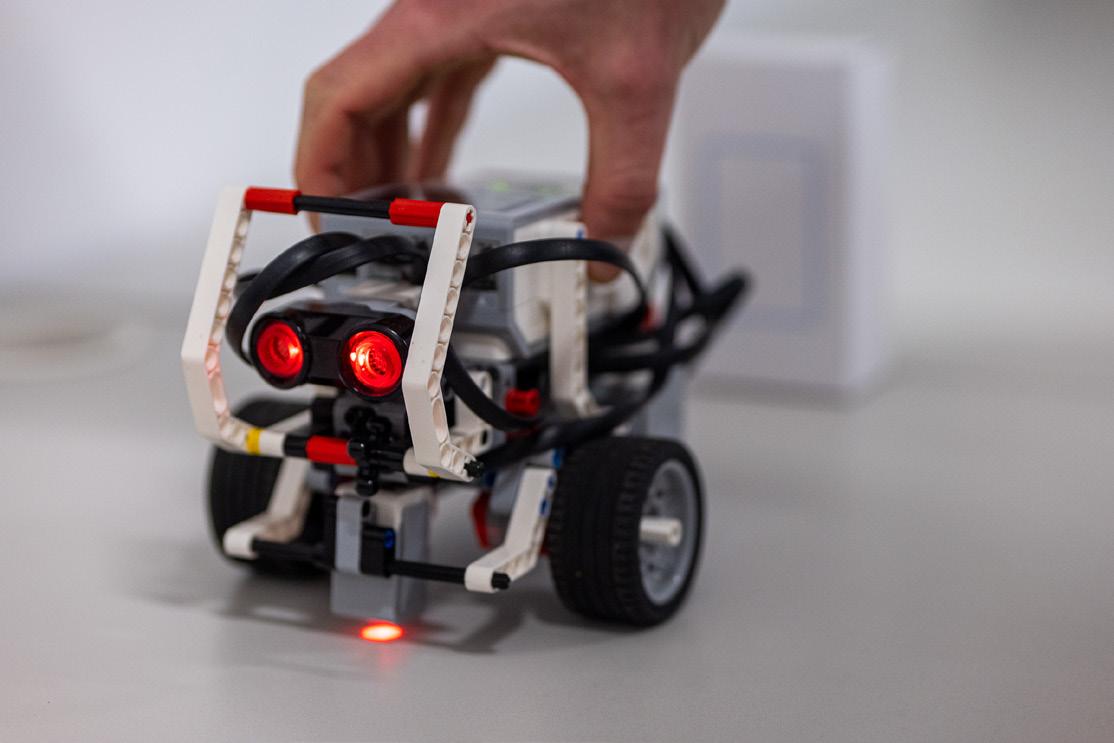

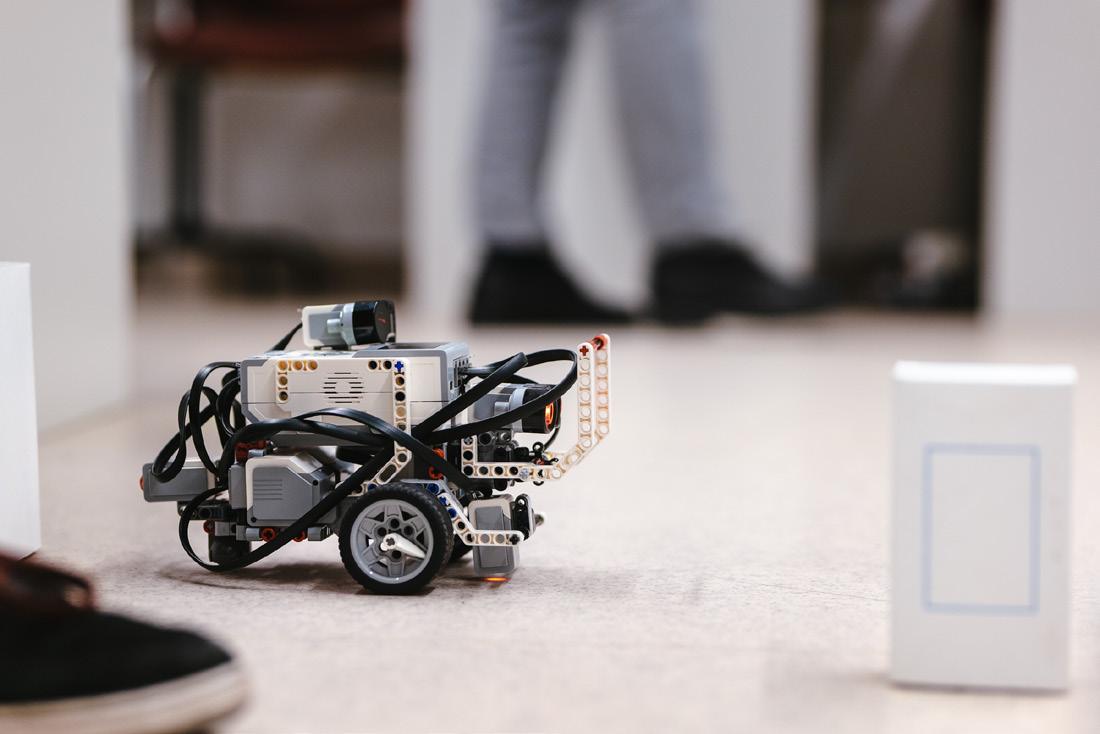
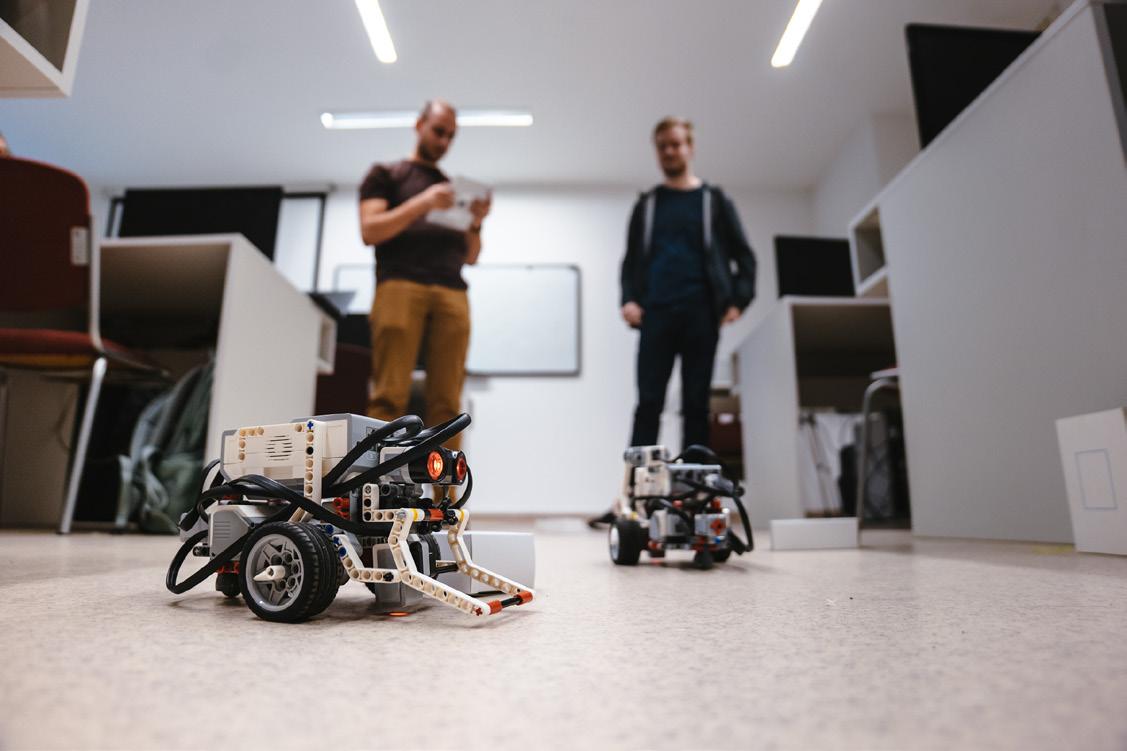

The objective of the course is to enable students to become familiar with the main principles of lean management through hands-on experiences. Students participate in an interactive manufacturing environment, where their goal is to support the continuous development of the manufacturing processes, while monitoring and managing the changes and effects of their executive decisions based on key performance indicators.
The main topics are:
1. Push and pull manufacturing.
2. Defining, monitoring and evaluating KPIs.
3. Kaizen - Continuous improvement.
4. Detection and elimination of bottlenecks.
5. Visual management: Kanban.
6. Muda - Elimination of waste.
The 3D printing revolution is reshaping industries and inspiring creativity. While 3D printers are becoming increasingly accessible, mastering the art of 3D modeling is crucial to unlocking the full potential of this technology.
Participants of this course will gain hands-on experience with 3D printing technologies, exploring various methods and materials. They will learn the fundamentals of CAD modeling, designing 3D models optimized for 3D printing. By the end of the course, participants will be able to transform their ideas into tangible objects, from concept to creation.
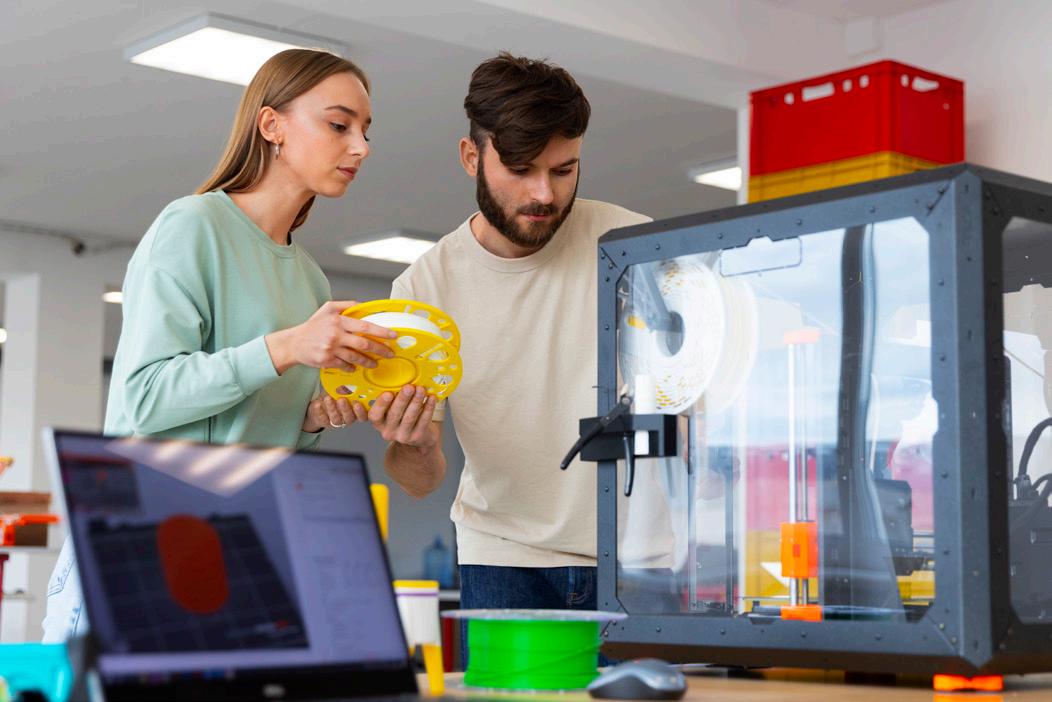
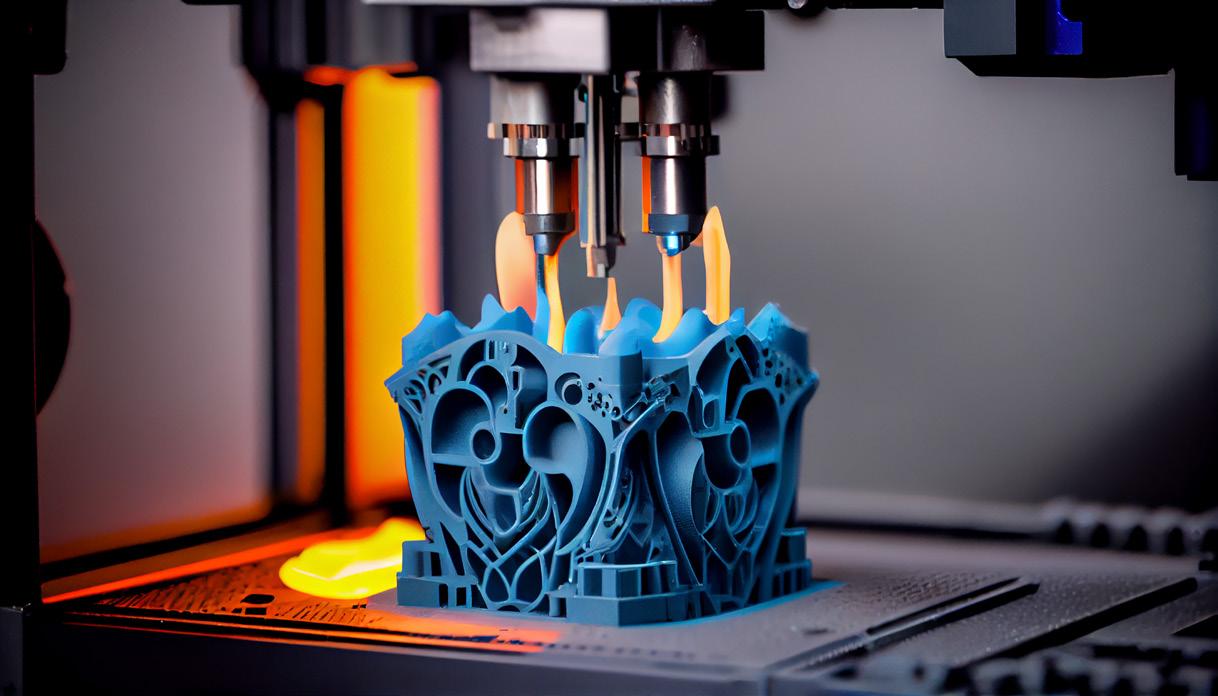
The steps of the course include:
1. A brief introduction to 3D printing. How does it work?
2. Different technologies, various application areas:
• Fused filament fabrication (FFF) – the most easily accessible manufacturing technology.
• Which software to choose for design?
• Basics of CAD modeling. 3D printing-specific design.
• Printer settings, software fine-tuning. Slicer program settings.
• Printing, turning ideas into finished products in a short time frame.
Our goal is to inspire the transition towards a generative, sustainable economy with those interested in the topic. Leveraging the visual flow of technology, we guide participants into the world of astronauts and offer a glimpse into an experiential learning program within a virtual reality (VR) framework. Through this, we acquaint students with space, our planet Earth, and technology, while initiating them into STEM-related knowledge. Participants of the summer university can sit in a slice of a spacecraft cabin, enriched with tacit knowledge gained from the immersive VR travel experience, returning home. Through a virtual space journey, we raise awareness of the importance of climate, environmental protection, and the natural sciences. By creating a new social educational ecosystem, we approach the "fish tower" method, highlighting global issues to the students of the course.
Every change begins with acquiring new knowledge, changing mindset, and embracing it with openness. The key competencies of the 21st century, fostered through STEM practices, ignite curiosity, interest, wonder, and the joy of discovery to achieve results.
The agenda of the course includes:
1. Presentation of theoretical frameworks, methodologies, and current topics.
2. Key competencies.



The aim of this short course is to provide students with a foundational understanding of AI concepts, principles, and applications. The courses typically aim to equip participants with the knowledge, skills and ethical awareness needed to navigate the rapidly evolving landscape of AI, regardless of their prior background or expertise. It offers participants opportunities for hands-on experience with AI tools through practical exercises.
The topics include:
1. Introduction to AI.
2. Fundamental concepts (machine learning, neural networks, deep learning).
3. Practical applications.
4. Hands-on experience.
5. Ethical awareness.
The aim of the course is for students to become familiar with the basics of drone technology, remote sensing and digital image processing. Get to know the main areas of application. Basic image processing and data analysis methods are applied in practice through the processing of own flight data.
The main topics are:
1. History of drones.
2. Technical basics of drones.
3. Basics of image processing.
4. Image classification and AI.
5. Applied remote sensing.
6. Application of drones.
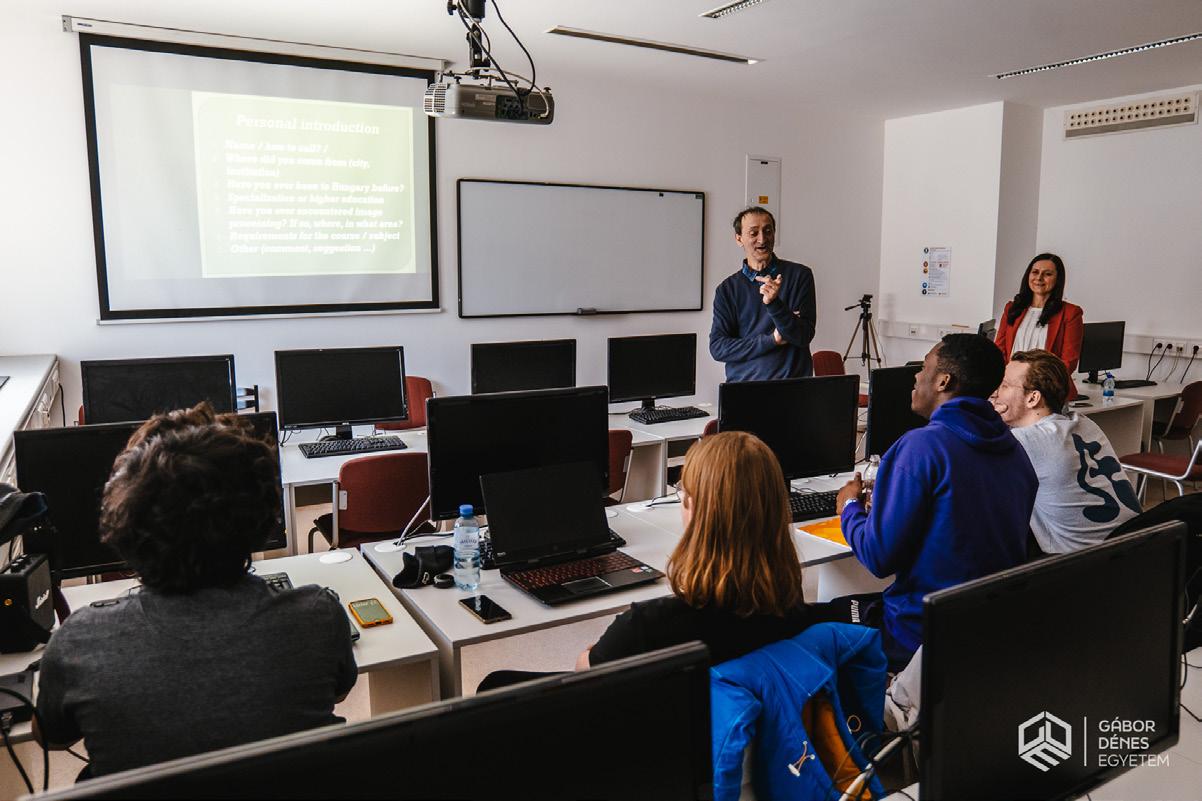

The goal of the practical part is for students to become familiar with the preparation and planning of environmental, agricultural and economic operations that can be carried out with drones. Perform targeted remote sensing operations in practice.
The main topics are:
1. Aeronautical fundamentals.
2. Planning drone operations.

1. Contact Period: Fulfilment of the specified contact hours according to the Syllabus, based on lecturer’s evaluation.
2. Teamwork Period: Active participation in groups; finding and providing a solution for the proposed project.

Schedule of 1st week
21 July25 July Monday Tuesday Wednesday Thursday Friday
Time
10:00 –13:00
14:00 –17:00
Plenary Session
Introduction of Learning Outcomes Python Basics, LEGO Robots Lean Management 3D Printing Excursion
Team Building Program Intro
Opening Party
Schedule of 2 nd week
Company Visit (KUKA –Robotics)
Company Visit (Siemens –Robotics)
28 July1 August Monday Tuesday Wednesday Thursday Friday

Time
10:00 –13:00
Artificial Intelligence Applications Drone Flying, Image Recordings Analysis of Drone Images Achievement Review Session 14:00 –17:00 Wrap-up Session Closing Party
Space Exploration

